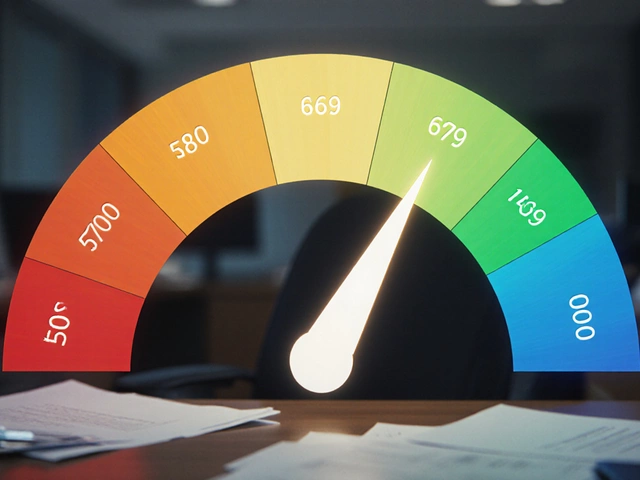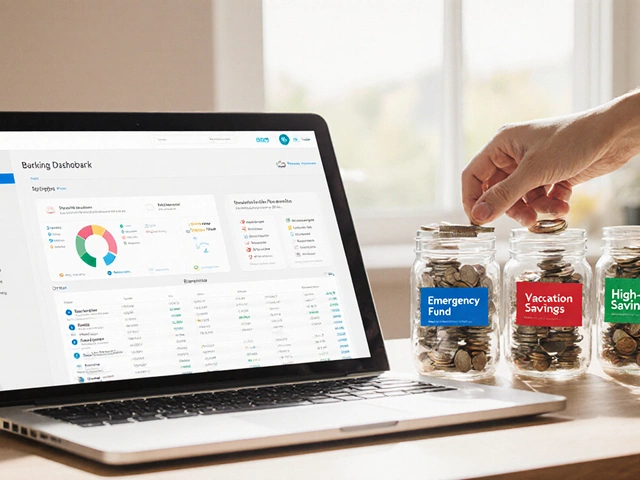
If you've ever wondered whether cancelling a credit card will hurt your credit score, you're not alone. This is a big question for anyone looking to tidy up their finances or cut back on credit cards they no longer use. The truth is, cancelling a credit card can affect your score, but it's not as black-and-white as it seems.
The key factor here is credit utilization. It's a measure of how much credit you're using compared to what you have available. When you cancel a card, especially one with a high limit, you reduce your available credit, and this can increase your utilization ratio, potentially dinging your score. Now, say you don't carry a balance or your credit use is low; the impact might be minimal.
Another thing to consider is your credit history. If the card you're about to cancel is one you've had for ages, closing it may shorten your overall credit history's age, which can also have a negative impact on your score. However, if you're just chopping off a card you got last year, the effect may be less significant.
- Understanding Credit Utilization
- The Role of Account History
- Credit Score Myths Busted
- Tips to Mitigate Negative Effects
Understanding Credit Utilization
Credit utilization is a fancy term for something pretty simple: how much of your credit card limit you’re using. Think of it as a snapshot of your spending habits. It's a big deal because it makes up about 30% of your credit score, so keeping it in check is important for maintaining a healthy rating.
Here's the deal, creditors love to see low credit utilization, preferably below 30%. Imagine you have a combined credit limit of $10,000 across all your credit cards. Spend less than $3,000 at any given time, and you're in the sweet spot. Cancelling a credit card could mess with this balance if it reduces your total available credit and pushes your utilization rate up.
How It's Calculated
It’s pretty straightforward. You just divide your total credit card balance by your total credit limit. For example, if you have $1,500 in balances and a $5,000 limit, your credit utilization is 30%. Simple math! Keep this ratio low to show lenders you’re good at managing debt.
Impact of High Utilization
When your credit utilization is high, it signals to lenders that you might rely too heavily on your cards, potentially making you riskier to lend additional credit. A high utilization rate hurts credit scores and could result in higher interest rates when you apply for loans.
Pro Tips to Manage Utilization
- Keep credit card balances low by paying off purchases as you make them instead of waiting until the end of the month.
- If you're getting close to 30%, consider making early payments to lower the balance.
- Request an increase in your credit limit to improve your utilization ratio without changing spending habits.
To sum up, monitoring your credit utilization is a huge part of maintaining financial health and boosting your score. So, always think twice before closing any credit card accounts, because when it comes to your credit score, every little bit counts!
The Role of Account History
When it comes to understanding how cancelling a credit card might affect your credit score, the length of your account history is crucial. Simply put, credit bureaus love it when you've been rocking your credit accounts for a long time. A lengthy history suggests you're experienced with handling credit, which can be seen as responsible behavior.
Here's how it works: every credit account you have contributes to an average age that lenders use to assess your creditworthiness. So, if you've had a credit card for, say, 15 years, that's a good chunk of time that adds positively to your credit record. The longer your average account age, the better you appear in the eyes of the lenders.
Cancelling a credit card shortens this average age, especially if it's one of your older accounts. It's a bit like cutting down the tallest tree in the forest; suddenly, the average height—or in this case, age—drops. So, it's wise to keep your oldest cards active unless there's a compelling reason to ditch them.
Benefits of a Long Account History
Maintaining a long credit history can lead to better interest rates on loans, easier access to new credit, and it can play a big role in achieving a high credit score. Think of it like showing off a perfect attendance record; lenders appreciate the consistency.
Weigh Your Options
Before you make any moves, consider why you're cancelling the card. If it's due to high fees or poor benefits, maybe exploring a product change with the same issuer can retain your history while offering better terms. Always weigh the pros and cons, especially if it involves closing one of your oldest forms of credit.
So, if you're itching to cut a card out of your life, look into what kind of impact that could have. Maybe, just maybe, keeping it tucked away and using it now and then could be the wiser move for your financial future.

Credit Score Myths Busted
Let's clear up some confusion around credit scores. There's no shortage of myths floating around out there, and they can definitely lead you astray. So, let's set the record straight on some common misconceptions.
Myth #1: Checking Your Own Credit Lowers Your Score
This one pops up way too often. The truth? Checking your own credit score is considered a 'soft inquiry' and doesn't affect your score at all. Feel free to check it regularly; you’re not doing any harm.
Myth #2: Carrying a Balance Boosts Your Score
Another popular myth is that keeping a balance on your credit card improves your credit score. Wrong! In fact, carrying a balance can lead to paying unnecessary interest. Always try to pay off your balance in full every month. It’s better for your score and your wallet.
Myth #3: Closing a Credit Card Always Hurts Your Score
Cancelling a card might not be as bad as it's cracked up to be. While it can affect your credit utilization and history, it doesn't automatically trash your score. If the card has a high annual fee, it might be worth closing it after considering all effects.
Myth #4: Credit Scores and Income are Connected
Believe it or not, your income isn't directly tied to your credit score. Lenders care about how you manage your credit, not exactly how much money you make. Though a higher income might help you qualify for better terms, it doesn’t impact the score itself.
| Myth | Truth |
|---|---|
| Checking own credit lowers score | False |
| Carrying a balance boosts score | False |
| Closing a card always hurts score | False |
| Income affects credit score | False |
These misconceptions can trip you up, but once you know them, managing your credit becomes a bit easier. Remember, facts over fiction any day when it comes to your finances!
Tips to Mitigate Negative Effects
Thinking about cancelling a credit card but worried about the possible hit to your credit score? Here are some practical steps to help minimize any negative impact.
Keep Balances Low
A great way to keep your credit score steady is by maintaining low balances on your remaining cards. This ensures that your overall credit utilization ratio stays low. Remember, the general advice is to keep that ratio under 30%.
Pay Off Debts
Before you shut down a card, consider paying off as much of your existing debt as possible. This will not only improve your score but also free you from financial stress related to interest rates.
"Your credit score is more than just numbers; it's a reflection of your financial habits and lifestyle," explains finance guru, John Ulzheimer.
Keep Older Accounts Open
It might seem tempting to cut ties with those older, rarely-used cards. Instead, keeping them open can help preserve a longer credit history. If the annual fee is a concern, try negotiating to have it waived or look for no-fee options.
- Consider downgrading to a no-fee card rather than cancelling.
- Set up automatic payments for small recurring charges to keep the card active.
Diversify Your Credit Types
Mixing up your credit with loans, mortgages, or other credit lines, apart from credit cards, can sometimes buffer the impact of closing a card. Just make sure you're handling them responsibly.
Regularly Check Your Credit Report
Keep tabs on your credit reports for any errors or spontaneous changes. You can get a free report annually from major bureaus or consider a monitoring service for more frequent checks. Correcting mistakes can sometimes give your score a much-needed boost.
If you want to be entirely data-driven in your decision, make use of online credit score calculators that simulate the effects of various actions on your score.








Write a comment